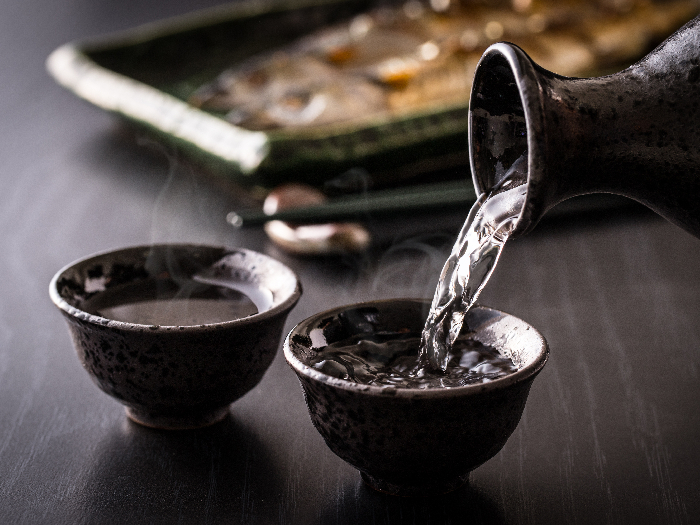Rice wine is an alcoholic beverage created with fermented rice and used throughout South and East Asia, both for cooking and drinking. Depending on how you’re using it, finding the right rice wine substitutes is important. So, here we have curated a comprehensive list of the best rice wine substitutes.
Rice Wine Substitutes
The most popular types of rice wine are Shaoxing, mirin, and sake, and all are used in cooking. Avoid substituting rice wine across cuisines – Chinese rice wine has a vastly different flavor profile than Japanese or Indian rice wine. However, if your palate isn’t overly sensitive, or if you have no other options, lean towards using smaller amounts of any substitute to protect the meal’s flavor as much as possible.
The best rice wine alternatives include pale dry sherry and white wine in a 1:1 ratio or a smaller amount of gin.

The Japanese use sake while cooking similar to how you would use wine for cooking. Photo Credit: Shutterstock
Substitute for Sake
When looking to replace sake, a Japanese variety of rice wine, use dry sherry and white wine in equal amounts. [1]
Substitute for Mirin
To substitute for mirin, mix 1 part sugar with 6 parts dry sherry, dry white wine, or sweet marsala wine.
Substitute for Shaoxing Rice Wine
If the recipe calls for Shaoxing rice wine, use pale dry sherry (not cooking sherry!).
Substitute for White Rice Wine
If you’re looking for a white rice wine substitute, use a slightly smaller amount of gin or vermouth. Gin has the most similar flavor.
If you want to make your own rice wine, you can visit Rice Wine Benefits, Recipe & Side Effects.
Word of Caution: Cooking with alcoholic beverages results in only some loss of alcohol content. Foods baked or simmered in alcohol can retain anywhere from 4 percent to 85 percent of the alcohol, according to a study by the U.S. Department of Agriculture’s Nutrient Data lab. Also, if you are following a total avoidance of alcohol, you may want to skip using different kinds of wine vinegar as they do still contain some level of alcohol. [2]
